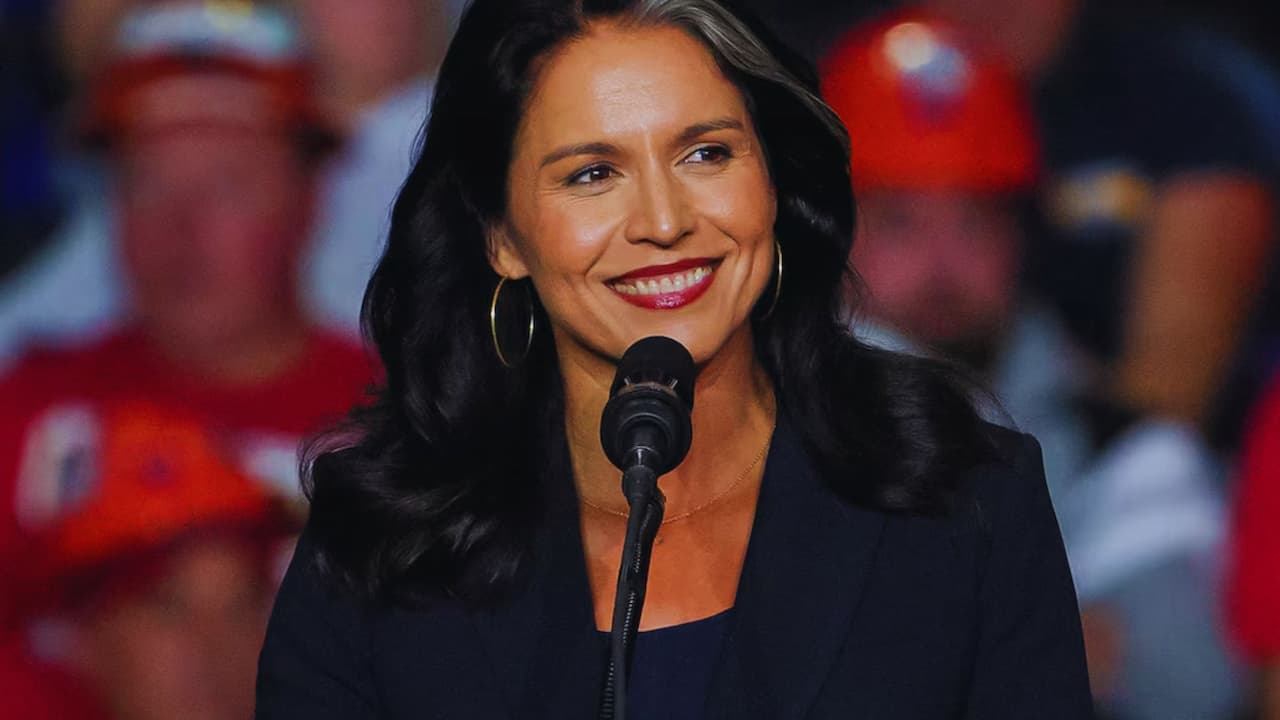Shockwaves in Washington: Trump’s Intel Chief Pick Raises Global Security Questions
The political landscape shifted dramatically as President-elect Donald Trump named former Democratic Representative Tulsi Gabbard as his choice for Director of National Intelligence (DNI), sending ripples through the national security establishment and raising concerns among international allies.
The surprise nomination of Gabbard, who would oversee America’s 18 intelligence agencies, has sparked intense debate about national security implications and the future of international intelligence sharing. As a key cabinet position requiring Senate confirmation, the role of DNI holds critical importance for U.S. national security and global intelligence cooperation.
A Controversial Choice
Gabbard, 43, brings an unconventional background to the position. As an Army Reserve lieutenant colonel and former Democratic congresswoman who switched to support Trump, her nomination breaks traditional patterns for this crucial security role. However, her limited intelligence experience and past positions on foreign policy have raised concerns among security experts.
Key concerns about Gabbard include:
- She has previously met with Syrian President Bashar al-Assad.
- Statements seen as sympathetic to Russia regarding the Ukraine conflict
- Limited direct experience with intelligence operations
- U.S. foreign policy decisions have faced previous criticism.
International Impact
Western allies are watching closely, with some intelligence officials suggesting there could be a slowdown in information sharing when Trump takes office in January. This could affect the “Five Eyes” intelligence alliance between the U.S., Britain, Canada, Australia, and New Zealand.
A senior European intelligence official stated agencies would take a “pragmatic” approach, though they remain cautious. The official noted that there is currently no sense of panic, but emphasized that they will remain “attentive” to developments.
Congressional Response
The nomination has drawn sharp criticism from Democratic lawmakers. Concerns about Gabbard’s qualifications and past positions led Representative Abigail Spanberger to declare her “appalled” by the selection. Meanwhile, Representative Jared Moskowitz called the choice “incredibly reckless.”
Republican responses have been mixed. While Senator Marco Rubio defended the nomination as “revolutionary,” others like Senator John Cornyn took a more measured approach, emphasizing the Senate’s duty to properly vet the nominee.
Looking Ahead
The confirmation process promises to be challenging. With Republicans holding at least 52 Senate seats starting in January, Gabbard’s confirmation seems likely but not guaranteed. Key questions remain about:
- Her approach to sharing intelligence with allies is unique.
- Management of sensitive international relationships
- The handling of critical security information
- Strike a balance between political loyalty and professional judgment.
Broader Implications
The selection of Gabbard fits into a larger pattern of Trump’s second-term nominations, including Matt Gaetz for attorney general and Pete Hegseth for defense secretary. These choices suggest a preference for personal loyalty over traditional qualifications, raising questions about the future direction of U.S. security institutions.
As one former U.S. intelligence officer noted, “Our friends are watching as closely as our foes, and they are asking what this all means for the preeminent player in global intelligence collection and analysis.”
The coming months will prove crucial as the Senate evaluates Gabbard’s qualifications and the international community adjusts to potential changes in U.S. intelligence leadership. The outcome could reshape American intelligence operations and international security cooperation for years to come.
